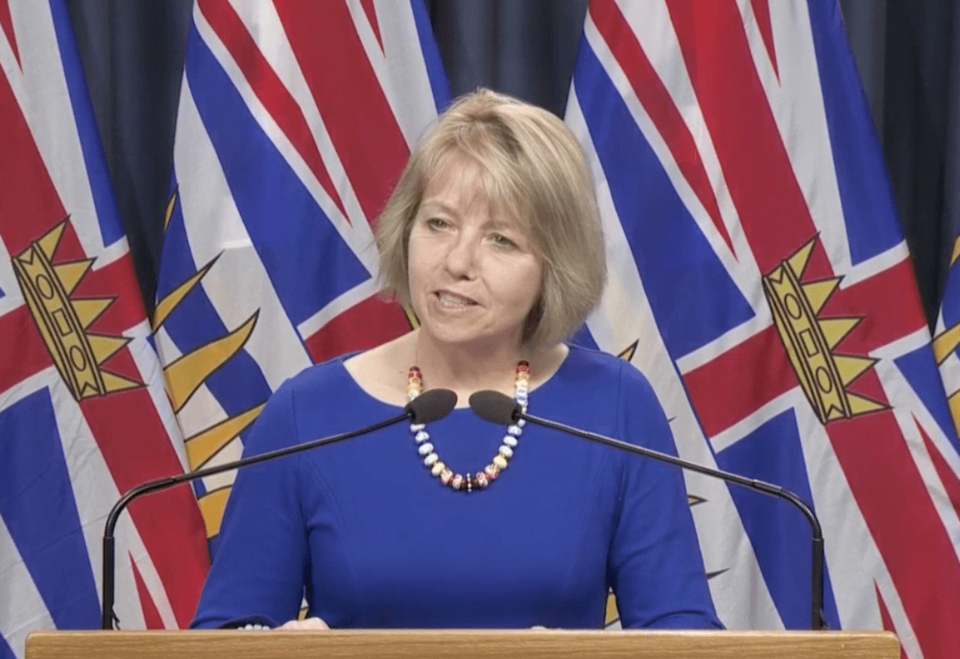There are now 48,027 cases of the coronavirus (COVID-19) in B.C. after health officials announced 518 new cases Wednesday.
Provincial Health Officer Dr. Bonnie Henry reports that there have been 97 new cases of COVID-19 in the Vancouver Coastal Health region, 332 in the Fraser Health region, nine in the Island Health region, 49 in the Interior Health region, 31 in the Northern Health region and no new cases from people who reside outside of Canada.
There have been two new health-care facility outbreaks and two that have been declared over. There have also been 55 outbreaks in long-term care facilities and six in acute care units.
There have been 19 new COVID-19 related deaths, for a total of 796 deaths in British Columbia.
Of the total COVID-19 cases, 348 individuals are hospitalized, 86 of whom are in intensive care. The remaining people with COVID-19 are recovering at home in self-isolation. Approximately 9,689 people are under active health numbers.
There are 9,137 active cases of COVID-19 in B.C. and 36,952 people have recovered from the virus.
Public alerts and notifications are posted on the BC Centre for Disease Control’s (BCCDC) website and on all health authorities’ websites.
“Since the start of immunizations, 5,603 people have received the Pfizer-BioNTech COVID-19 vaccine in B.C," said Henry.
“Today, the federal government approved the Moderna COVID-19 vaccine. This is another encouraging step forward for all of us.
“Starting next week, the Moderna vaccine will be arriving in B.C., with some of the initial doses delivered to rural and isolated First Nations communities. Unlike the Pfizer-BioNTech vaccine, this vaccine has fewer delivery restrictions, making it easier to provide immunizations in rural and remote communities."
COVID-19 Modelling in B.C.
“As today’s modelling has clearly shown, while the provincial health officer’s (PHO) orders and restrictions are difficult for all of us, they work. The fewer people we see, the safer we are," said Henry.
“The data has also shown us that community transmission affects people of all ages. But, unfortunately, it is our seniors and elders who continue to be the ones that are most likely to become seriously ill or worse."
In the last month, everyone was told to reduce their in-person social interactions as much as possible, and the most recent orders support these efforts.
“Today, a new PHO order for industrial camps in the Northern Health region has been put in place. This order will allow for a phased approach to resuming activities at these projects, while protecting health and safety and protecting the health-care system," said Henry.
“The nature of an industrial work camp means employees frequently travel to and from these work camps. At the start of the year, these camps typically have an influx of employees returning to the site. Combined, these factors mean a higher potential for spread amongst employees and in their home communities.
“We are already seeing many small, rural and remote communities in the North under strain. This order will help ease the pressure at the start of the year."
With Christmas two days away, health officials are reminding everyone to keep their celebrations small and avoid travel to other communities unless it is absolutely necessary: "Show you care by staying away."
"For those who live alone, you do not need to be alone. Rather, choose one small group of one or two other people you are going to spend time with over the holidays – whether at your home or theirs," explained Henry.
“This is a special time for many of us and having those connections with the people we love and care for is important. We encourage you to have a small, safe and happy holiday, so we can all have a safer year ahead.”




